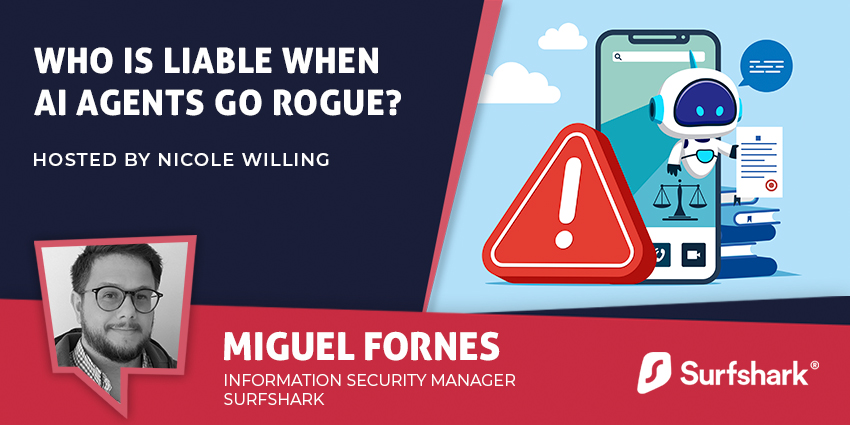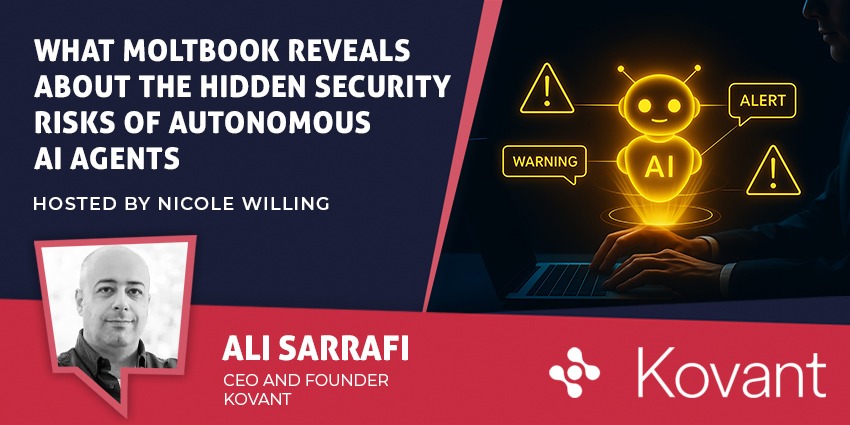Across Europe, the issue of data sovereignty has quietly shifted from a compliance box-ticking exercise to one of the primary filters through which companies judge their tech choices.
As governments and enterprises deepen their reliance on cloud and AI technologies, control over where data is stored and how it is processed has become central to maintaining operational resilience and regulatory compliance, and most importantly, customer trust.
More than 80 percent of business leaders cite data sovereignty as a strategic business priority, according to research by German analyst firm BARC.
“We have to get a lot better at understanding that data is money, and we need to put the security that we’ve had in place around money for 1,000 years around data,” online privacy expert Ron Zayas, CEO of Ironwall by Incogni, told CX Today in an interview.
Companies are feeding their data to AI engines to train their models, but regulations like the EU Data Act, which creates rules for data sharing and access—not to mention growing cybersecurity threats—require them to tread carefully. As Zayas put it:
“We need to understand that the same way you wouldn’t let your employees interact with networks without a firewall, you can’t let companies interact with AI without having some type of firewall in between and understanding what data you can share.”
Recent moves by European and global technology leaders indicate that they are responding to accelerating demand for a sovereignty-driven approach to innovation.
The Rise of Europe-Built Cloud and CX Solutions
Odigo, a European CCaaS and CXaaS provider, recently acquired Akio, a French software vendor specialising in AI-powered CCaaS solutions for SMEs and mid-market firms. The merger brings together Odigo’s enterprise-scale CX offering with Akio’s capabilities in AI, voice of the customer analytics, and reputation management.
But beyond expanding product portfolios, the acquisition represents a strategic move to consolidate European technological capabilities and reduce dependence on non-European cloud providers. (Aside from data sovereignty that push is becoming more significant given recent cloud service outages.)
As Odigo stated in announcing the deal:
“[T]he merger of two complementary French vendors with a strong presence across Europe reinforces Odigo’s ambition to create a competitive European alternative to the American firms in the sector. This approach comes at a time when European companies are placing greater focus on data sovereignty and control over their technological environments.
Patrick Giudicelli, Founder and President of Akio, added: “Joining Odigo means joining a French company that shares our values of customer proximity and sovereignty.”
The newly combined company offers a customer engagement ecosystem designed and hosted within Europe, where data control and regulatory compliance are built into the architecture.
Global Platforms Are Localizing Data and AI Operations
The big tech players are also evolving their approaches to sovereignty. Last week, enterprise AI platform Workday announced the rollout of its Workday EU Sovereign Cloud in 2026, keeping its European customers’ data local and secure.
All operations, including AI processing, data center access, support, and maintenance, ensure customer data is managed by EU-based personnel and never leaves the region.
“Workday understands how quickly evolving data sovereignty requirements can make it difficult for organizations to keep pace,” Gerrit Kazmaier, President, Product and Technology at Workday, said in the announcement. “Workday EU Sovereign Cloud gives our customers the freedom to innovate and grow confidently—helping them harness the power of AI while knowing their data remains protected and compliant.”
EU Sovereign Cloud is built on AWS infrastructure and spans multiple, geographically separated data centers to provide redundancy for key systems. Hardware protections prevent unauthorized access, and end-to-end encryption safeguards data whether it is in use, in transit, or in storage. An EU advisory board provides oversight to strengthen transparency and adherence to European sovereignty and security standards, Workday said.
The vendor plans to extend the offering to other regions down the line, but there’s no surprise that it’s starting with Europe first, given the region’s strict data rules.
Tech giant Microsoft has added a new set of capabilities to its Sovereign Public Cloud and Sovereign Private Cloud offerings that build on its digital sovereignty controls to deliver AI and cloud services strengthened by its ecosystem of specialized in-country partners.
The update includes end-to-end AI data processing within the European Union’s Data Boundary, the general availability of Microsoft 365 Local, and localized versions of its Copilot AI assistant in four countries by the end of the year, with 11 more to follow in 2026. That ensures Copilot interactions are typically processed in data centers located within a nation’s borders, to give customers greater control over where their data goes.
Microsoft has also extended its Sovereign Landing Zones for Azure and introduced new infrastructure capabilities, such as support for external SAN storage and the latest NVIDIA GPUs, to help enhance the performance of local deployments. The company is expanding its ecosystem of regional experts through a Digital Sovereignty specialization.
Microsoft acknowledged that organizations in Europe and other jurisdictions face a complex slate of regulatory mandates, as well as heightened expectations for resilience. As Douglas Phillips, President and Chief Technology Officer, Microsoft Specialized Clouds, stated in the update:
“Sovereignty has become a core requirement for governments, public institutions, and enterprises seeking to harness the full power of the cloud while retaining control over their data and operations.”
The conversation around data sovereignty has also been amplified by Zoho, which raised the issue in releasing its latest Zoho One upgrade.
The vendor highlighted the value of controlling the full technology stack and emphasized that operating its own infrastructure through to applications allows it to offer deployment models that give customers the control they need to meet regulations and provide transparency to their end users.
“We are doing these on-premise deployments in some countries where your data center has to be set up in that country, because we own… the entire stack … we are able to do it particularly when dealing with governments,” Raju Vegesna, Chief Evangelist at Zoho, said during a media briefing.
This approach allows organizations to maintain national or regional control over critical communication systems, an increasingly common requirement for enterprises that need to guarantee uninterrupted access to essential services.
These initiatives reflect a broader market realignment and a recognition that sovereignty does not need to be a constraint on innovation but can be a selling point for vendors. European enterprises increasingly expect cloud and AI providers to deliver verifiable assurances of data control and jurisdictional compliance.
As regulatory demands tighten and put more pressure on enterprises, from the EU Data Act to AI rules and sector-specific cybersecurity requirements, cloud providers that can offer data sovereignty by design are likely to gain a competitive edge.







